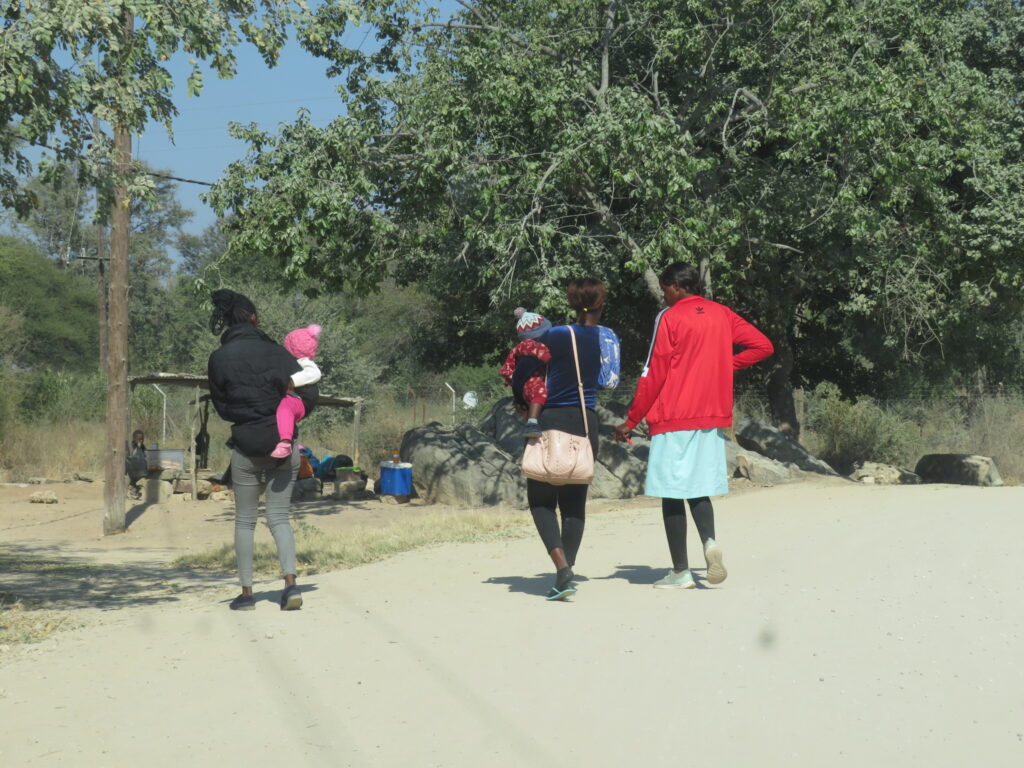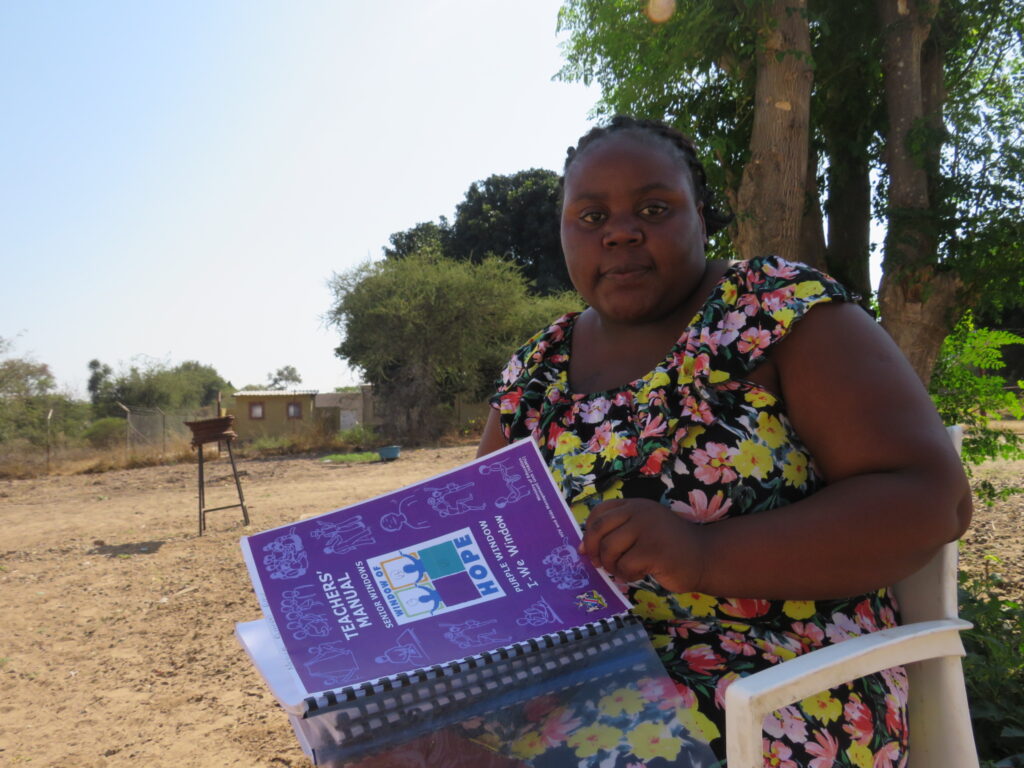- Words and Images by Ester Mbathera
The Divundu settlement on the banks of the Kavango River is one of the communities with high teenage pregnancy rates in the Kavango East region.
In this village, 200 kilometres from the region’s capital of Rundu, it isn’t unusual to find girls as young as 13 who are mothers, and girls who have two children by the age of 15.

The contraceptive injection, which is the preferred method of pregnancy prevention in the area, is hard to come by at the settlement. This is despite the area being serviced by ten clinics, of which two belong to the Catholic Church and the rest to the government.
The main district hospital in the area is the Andara Catholic Hospital, which was built by missionaries in the 1960s and is fully funded by the state. It is aligned to Roman Catholic principles, which maintain that it is intrinsically wrong to use contraception to prevent new human beings from coming into existence.
The chief medical officer at the hospital, Dr Fadwick Mariwa, explains that although the need for contraceptives is great in the area, the hospital does not provide family planning services.
“We don’t give people contraception here because it’s a Catholic hospital. We refer the women to the state clinics,” he said.
At Divundu State Clinic, the seats next to the prefabricated structure where women are supposed to receive family planning services are empty. There’s no point in queuing – contraceptives have not been available since May.
The nurse on duty (who asked to remain anonymous) explains that contraceptives are only available sporadically. “We are supposed to get contraceptives every month but since 2020 we have started having this problem. Sometimes we get it once per year or twice a year,” said the nurse.
She explains that the clinic gets 200 doses of the Petogen injectable contraceptive at a time, which is not enough. The doses are administered on a ‘first come first served’ basis and can be depleted within two days.
“The problem is you give people a follow-up date of three months but then if nothing comes they stay for up to four months without anything. When the contraceptives come, all those who missed their follow-ups also come and we can’t deny them,” added the nurse.
She explains that even if they want to help young people with contraceptives the only dose available is Petogen, an injectable contraceptive which, in the past was designated for women with three children or over the age of 35 as per Namibia’s National Family Planning Guidelines.
“We have not had Nur-isterate [another injectable contraceptive] since 2019. Now we administer Petogen to young kids which is very bad. What can we do? They are sexually active and we cannot send them away; they will get pregnant, especially those that are 14 years old,” explained the nurse. Petogen and Nur-isterate are both hormonal contraceptives that give users long-term and reliable protection from pregnancy for 12 weeks and 8 weeks, respectively. Notably, while Namibia’s updated family planning guidelines now state that Petogen is suitable for all ages, many health professionals appear to be unaware of this development.
We have not had Nur-isterate since 2019. Now we administer Petogen to young kids which is very bad. What can we do? They are sexually active and we cannot send them away; they will get pregnant, especially those that are 14 years old.
An nurse at one of the state health facilities in Divundu, on the limited stock and options available to young women and girls.
When questioned about the depleted stocks, Kavango East regional health director Woita Kapumburu denied that the clinics do not have contraceptives.
“All facilities are currently having contraceptives with the exception of Catholic health services clinics, those ones, unfortunately, don’t stock any contraceptives for belief reasons,” he said. However, several medical facilities refuted this. [Editor’s note: At the time of publishing, we were unable to confirm how often other contraceptive methods (apart from the injection) are re-stocked.]
Women who have the financial means can purchase their injectable contraceptives from pharmacies at the settlement or they have to travel to Rundu. These cost between N$120 to N$150.
In an effort to fight teenage pregnancy at the settlement, various civil society organisations host safe spaces for adolescent girls and young women, in partnership with PEPFAR.
The project, called DREAMS (Determined, Resilient, Empowered, AIDS-free, Mentored, Safe), works to reduce new HIV infections and empower women and girls with education, skills development, and access to family planning. Melita Kakororo leads one such group of women in girls aged 10 to 24 in Divundu.

They follow two curricula, namely ‘My Future My Choice’ and ‘Window of Hope’. “The main purpose is to reduce teenage pregnancy, HIV and Aids and gender-based violence amongst young girls,” explains Kakororo.
She says 70% of the group members are under the age of 18 and are already mothers. Kakororo, who also gave birth in her teens, is using her experiences to create awareness of the consequences of unprotected sex.
“Most of the girls are into sex and relationships. We realised that girls are not getting enough education when it comes to sex. They think sex is just for pleasure but they don’t know what comes along with sex,” she said.
We realised that girls are not getting enough education when it comes to sex. They think sex is just for pleasure but they don’t know what comes along with sex.
Melita Kakororo, a project leader at Divundu’s Dreams Club, on the importance of education around sexual health.
Namibia is a signatory to the Maputo Protocol, a comprehensive document that outlines commitments to protect women and young girls in Africa, and includes the protection of sexual and reproductive rights. However, realising these commitments and implementing policies remains a challenge among lawmakers, regardless of their gender. Opposition member of parliament Elna Dienda attributes this to the lack of an organised platform were issues about women’s rights, and sexual and reproductive health and rights can be discussed.
Dienda admits that there has not been a right level of commitment to issues that affect women and young girls in the Namibian parliament.
“The Women’s Caucus group is a dead body just because parliamentarians are fighting for a position that gives them an opportunity to travel all around the world. It does not exist,” said Dienda. She added that female parliamentarians have recently established an interim working group to come up with a plan on how the caucus group should be run.
Until then, health professionals around the country continue to try and protect the most vulnerable people in underserved communities.
Ester Mbathera is a Namibian freelance journalist.
Cover Photo by Reproductive Health Supplies Coalition on Unsplash